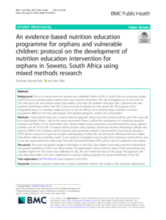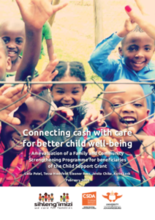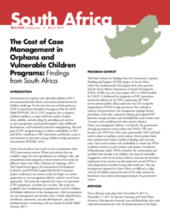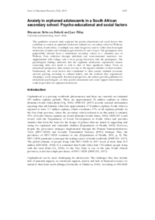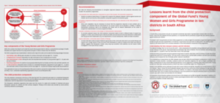childrens_living_arrangement
children_living_without_bio
Displaying 121 - 130 of 336
The purpose of this longitudinal study from BMC Public Health is to develop, implement and to test the efficacy of an evidence-based nutrition education programme (NEP) for orphans and vulnerable children (OVC) in South Africa that will integrate their families/caregivers, schools and communities.
This chapter’s authors argue that social policy on leaving care is a critical resilience process for promoting care leavers’ successful transition toward emerging adulthood.
This study explored children orphaned by AIDS perceptions and experiences of HIV-related stigma and how it has affected their psychosocial well-being.
This report presents the findings of an intervention study evaluating the short-term outcomes of Sihleng’imizi Family Programme, an evidence-based preventative social-educational intervention.
This brief outlines the findings from the Government Capacity Building and Support project, in South Africa, which Pact implemented with support from three partners and the South African Department of Social Development.
USAID and PEPFAR-funded MEASURE Evaluation worked with six OVC projects in six countries to gain insight on current approaches to OVC case management, map how costs can be linked to OVC case management activities, and determine the cost of OVC case management.
This report presents the quantitative findings of the Growth Beyond the Town longitudinal research study since its inception in 2012 up until the end of 2018.
This qualitative research study explored the psycho-educational and social factors that contribute to anxiety in orphaned adolescent students in a secondary school in Welkom, Free State, South Africa.
This briefing paper reports on the lessons learnt from a process evaluation of the child protection component of the Global Fund’s Young Women and Girls (YWG) programme, a multi-pronged HIV prevention programme targeting young women and girls implemented in 10 districts in South Africa.
This paper explores how Black South Africans perceive and experience the adoption assessment process regarding the adoption of abandoned children.

